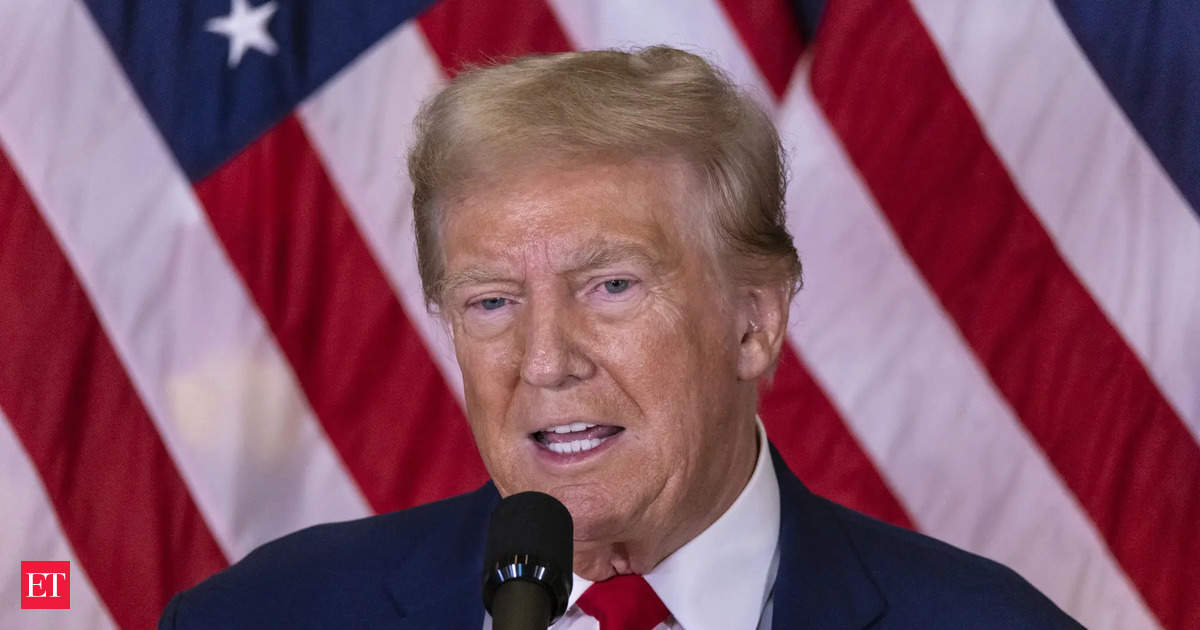Manhattan Judge Juan M. Merchan, who is also weighing a defense request to overturn the verdict on immunity grounds, delayed Trump’s sentencing until Nov. 26, several weeks after the final votes are cast in the presidential election.
It had been scheduled for September 18, about seven weeks before Election Day.
Merchan wrote that he was postponing sentencing “to avoid any appearance – however unjustified – that the proceedings have been affected or seek to affect the upcoming presidential election in which the defendant is a candidate.”
“The Court is a fair, impartial and apolitical institution,” he added.
Trump’s lawyers pushed for a delay in sentencing on several fronts, petitioning the judge and asking a federal court to intervene. They argued that punishing the former president and current Republican candidate in the midst of his campaign to reclaim the White House would amount to election interference. Trump’s lawyers argued that delaying his sentencing until after the election would also give him time to weigh next steps after Merchan rules on the defense’s request to reverse his conviction and dismiss the case because of the Supreme Court of the United StatesIn his Friday order, Merchan delayed a decision on the matter until Nov. 12.
TO federal judge On Tuesday, Trump’s lawyers rejected Trump’s request that the U.S. District Court in Manhattan take over Merchán’s state court case. Had they been successful, Trump’s lawyers said, they would have asked to have the verdict overturned and the case dismissed on immunity grounds.
Trump is appealing the federal court ruling.
The Manhattan district attorney’s office, which prosecuted Trump’s case, referred the matter to Merchán and did not take a position on the defense’s request for a delay.
Messages seeking comment were left with Trump’s attorneys and the district attorney’s office.
Election Day is November 5, but many states allow voters to cast ballots early, with some starting the process just days before or after the September 18 date.
In May, Trump was found guilty of 34 counts of falsifying business records to conceal a $130,000 payment to porn actress Stormy Daniels just before the 2016 presidential election. Daniels claims she and Trump had a sexual encounter a decade earlier, after they met at a celebrity golf tournament in Lake Tahoe.
Prosecutors said the payment was part of an effort by Trump to prevent voters from hearing lurid stories about him during his first presidential campaign. Trump’s former lawyer, Michael Cohen, paid Daniels and was later reimbursed by Trump, whose firm recorded the reimbursements as legal expenses.
Trump maintains the stories were false, that the reimbursements were for legal work and were recorded properly, and that the case, brought by Manhattan District Attorney Alvin Bragg, a Democrat, was part of a politically motivated “witch hunt” intended to damage his current campaign.
Democrats backing their party’s nominee, Vice President Kamala Harris, have made her conviction the focus of their messaging.
In speeches at the party’s doomsday rally in Chicago last month, President Joe Biden called Trump a “convicted felon” running against a former prosecutor. Rep. Jasmine Crockett, D-Texas, called Trump a “career criminal, with 34 felonies, two impeachments and a porn star to prove it.”
Trump’s 2016 Democratic opponent, former Secretary of State Hillary Clinton, inspired chants of “lock him up” from the convention crowd when she joked that Trump “fell asleep at his own trial, and when he woke up, he made his own kind of history: the first person to run for president with 34 felony convictions.”
Falsifying business records is punishable by up to four years in prison. Other possible sentences include probation, a fine or parole, which would require Trump to stay out of trouble to avoid further punishment. Trump is the first former president convicted of a crime.
Trump has promised to appeal, but that cannot happen until he is sentenced.
In requesting the extension, Trump’s lawyers, Todd Blanche and Emil Bove, argued that the short gap between the immunity ruling scheduled for Sept. 16 and the sentencing, which was to have taken place two days later, was unfair to Trump.
To prepare for the Sept. 18 sentencing, the attorneys said, prosecutors would submit their punishment recommendation while Merchan is still weighing whether to dismiss the case. If Merchan rules against Trump, he will need “adequate time to evaluate and pursue state and federal appeal options,” they said.
The Supreme Court’s immunity decision limits prosecutions of former presidents for official acts and restricts prosecutors from pointing to official acts as evidence that a president’s unofficial actions were illegal.
Trump’s lawyers argue that in light of the ruling, jurors in the hush money case should not have heard evidence such as that from former White House staffers who described how the then-president reacted to news coverage of the Daniels settlement.
Disclaimer:
The information contained in this post is for general information purposes only. We make no representations or warranties of any kind, express or implied, about the completeness, accuracy, reliability, suitability or availability with respect to the website or the information, products, services, or related graphics contained on the post for any purpose.
We respect the intellectual property rights of content creators. If you are the owner of any material featured on our website and have concerns about its use, please contact us. We are committed to addressing any copyright issues promptly and will remove any material within 2 days of receiving a request from the rightful owner.

